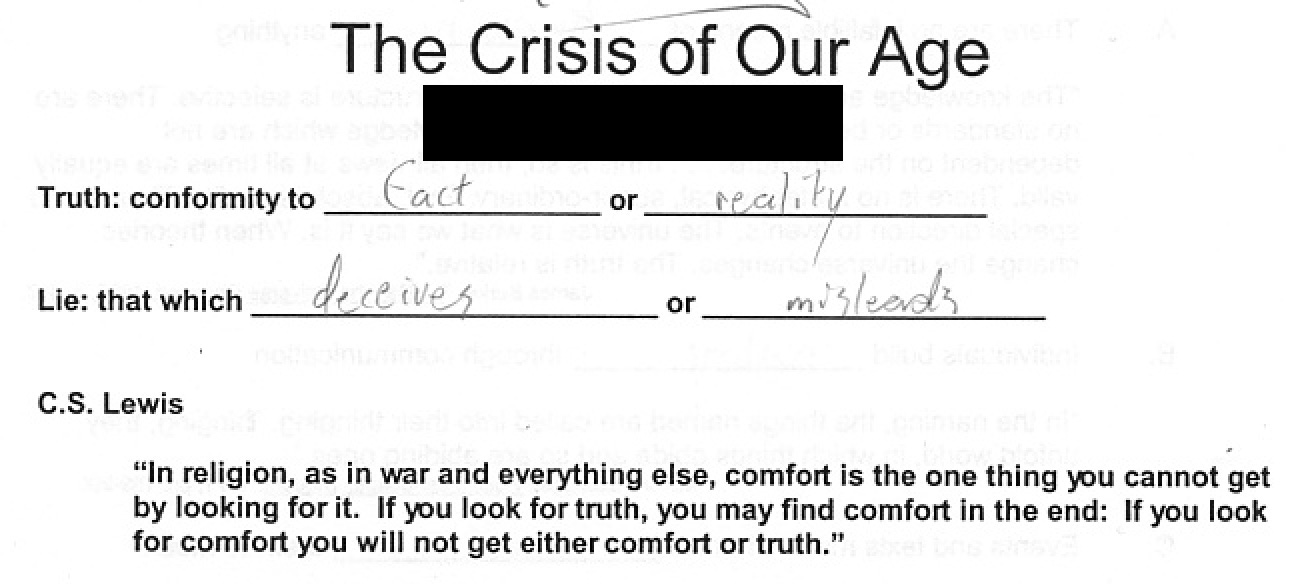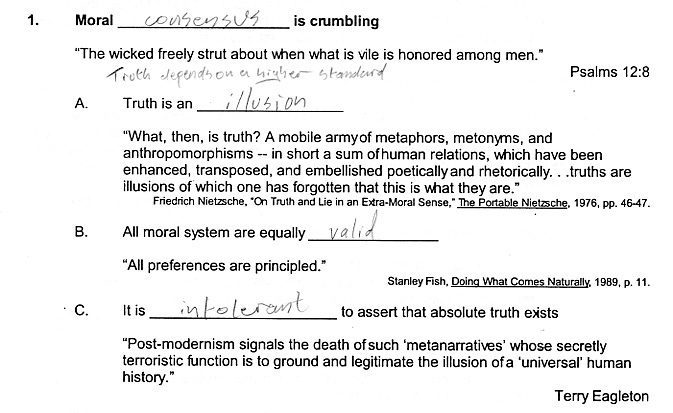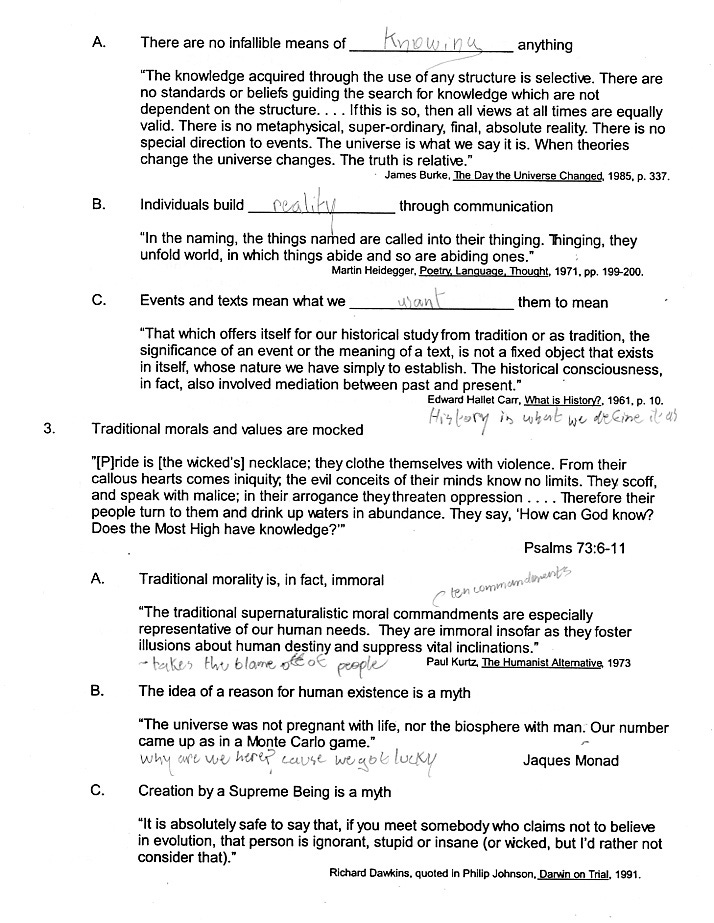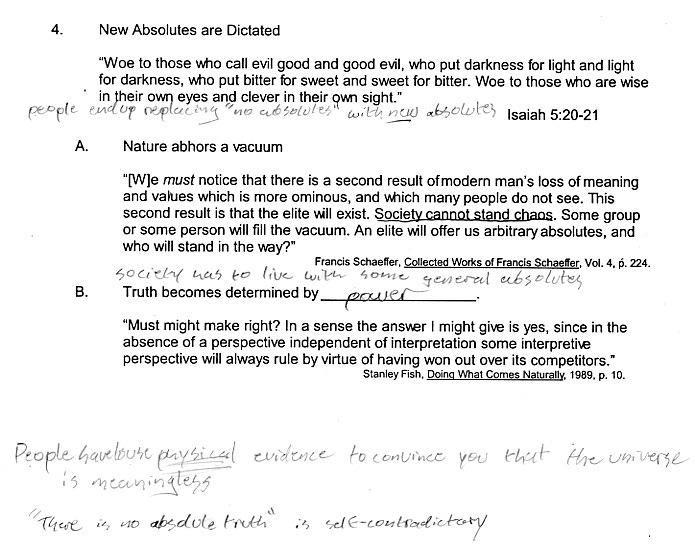Summer, 2001
I turned 17 in 2001, a few months after attending an Evangelical summer camp. I won’t name the program; I’m sure some Googling would get you a few names, if you wanted. I think a large part of what makes this culture & underlying belief system hard to write about is its slipperiness – it’s easy for Christians to separate themselves, or their pastor, their church, or their denomination from culpability, and names just make systemic problems seem individual.
For example, I grew up in an Evangelical Free church. (This is still Evangelicalism – it’s just a label denoting the lack of a label, kind of like how our church was “non-denominational” but a member of the “Evangelical Free Church of America”). I thought of our belief system as the “true” belief system, unburdened with legalism or tradition. We weren’t like the First Baptist church downtown, or the preachers on TV getting into trouble; we also weren’t like the churches where worshipers raised their hands or spoke in tongues, or the church across town that ran a revival fueled by financial corruption (that the local newspaper won an award for exposing), or the other church across town where I attended AWANA (think Christian cub scouts, with more military symbolism (including rank insignia & saying a second Pledge of Allegiance to the AWANA flag)).
That’s the thing about American Evangelical subcultures & subdivisions: there are countless pockets and nuances that separate people culturally & spiritually. I’ve started to think more about how those divisions serve a defensive purpose: whatever bad thing you might hear about, that’s not your belief system, that one is something ever so slightly different.
Because of this, an Evangelical will almost never feel convicted by corruption at a church other than their own, and may not even feel it if it’s their own church. You’re never going to corner an Evangelical through using a bad Evangelical as an example.
(Very large PSA: I’m going to try and say “Evangelical” or “American Evangelical” instead of Christian, generarally. I’m hesitant to say “Christian” when I’m being particularly critical, because ultimately Christianity is far, far larger than Western Evangelicalism, and I’m no theologian. It’s complicated, but the way it was presented to me was anything but.)
Who This Is All For
I’m honestly not sure if I’m writing to Christians that might be in various stages of processing (or deprogramming) the Evangelical belief systems of the 20th century to today, or writing to my friends without those backgrounds who are so genuinely baffled & distraught at the majority of Evangelicals reducing themselves to Trump-style latter-day conservativism. I’ve found that explaining this stuff to my non-Christian friends has been a way to use all the things I know and have experienced without letting it rot inside me or lay discarded in my deep memory.
I’m going to be doing my best to write for both people coming from this stuff, so they hear another voice through the haze, and people who need to understand it, so they understand what they’re dealing with, and how deeply it ingrains itself into people.
It’s hard to write about any of this knowing that people I know and love will think I’m being melodramatic, or that I’m getting too carried away, or that their specific church or belief system doesn’t run aground of the tactics & framing I will be reflecting on and explaining. Or, more directly, people I know and love will think I’m morally wrong; fallen; sinful. Like I said: this shit is slippery. I can’t fantasize about rhetorically cornering everyone (or anyone) who reads this.
But if you’re wondering why Trump happened, and why his policies (which existed before him, will outlive him, and probably only barely involved his input in the first place) are so popular with Christians, I think a lot of this will help. It’s helped me, anyway. I’d prefer to not have to dig through my own baggage to understand all of it, but here we are.
Deprogramming
I can’t upack all of my religious upbringing at once; I also can’t reject or accept all of it at once. I have been working through the process of unraveling it, thread by thread, choosing what to keep, what to reject, and what to simply let be. When you’ve spent a couple of decades at minimum in a way of thinking that functions primarily by tying all of those strands into one giant interdependent system, the last thing you want to do is turn the absolutist tools that you have – the only ones you have – against yourself.
It sure seems like a lot of people who are also in their mid-30s are undergoing a similar self-directed process. I thought the word “deprogramming” was melodramatic until the last year. Much like how the term “homophobia” rankled me when I was a kid, it sounded pejorative, preloaded with derision. Sometimes it takes time to accept that there are very real reasons that a word means what it means.
Actually Talking About The Camp Now
The only way I can think of to chip away at this whole belief system – which extends far wider than just a religion, and very intentionally blurs the boundaries of politics, social justice, religion, and basic human existence – is to talk about this camp and the artifacts I kept from it. I have two roughly 2-inch-thick binders, one for each summer I attended.
This camp’s stated goal was to prepare Christian kids for the largely secular & liberal “battleground” of the college campus. Many of the kids, like me, weren’t heading to a secular college. Later, at the Christian colleges I attended, we were reminded that after our education we’d be sent out into a secular workforce. However, in 2001 I was 16, a few months away from starting college as a 17-year-old freshman.
The camp was 2 weeks long; here are some opening notes from the very first session, describing the way society operates outside of Christian culture – drawing the outline of the enemy we were to prepare for battle against, with supporting quotes from Biblical, Christian, and secular sources.
If you’re going to run a program where you unify a wide variety of slightly different belief systems in a “culture war,” you need to provide an equally unified enemy. These are the first notes from the first speaker; I definitely don’t recall anything happening before this where Christian nuances or denominational preferences were decided upon or discussed. Focusing on all of the differences between church traditions & Bible translations wouldn’t serve a unifying purpose the way that opening with these other topics does. (Depending on the denomination and background of the Christian you ask, they might say some of those differences matter, or don’t; the process of deciding who is or is not immortal is, as you might imagine, pretty loaded.)
I remember this program being presented to me as a premium experience, a sort of boot camp where I was equipped with the best tools money could buy. A place to cut through the bullshit and tell it like it is.
I don’t remember ever asking any kid their denomination or home church; the camp was a unifying space. We were there to get the real truth. No legalism, no tradition, just How Things Were.
By the end of the first hour of my summer camp, a few hundred (a thousand? I’m bad at counting crowds) high-school-aged kids, a few months before 9/11, were fully equipped with the idea that out there in the secular, fallen, Satan-ruled world, society was under attack by the forces of relativism. Absolute truth is essential to societal existence & individual meaning, while rhetorically impossible to refute the existence of. Everything out there in the sinful world is arbitrary & chaotic.
If you’ve lived your whole life knowing your ticket is punched to immortality, it doesn’t take much to create a single enemy out of everything out there that’s not reinforcing your preexisting system of right & wrong.
A lot of therapists in 2021 are working through a lot of this black & white thinking with a lot of clients, myself included. It can be hard for a Christian to even visit a secular therapist; many of them, like me, seem to have finally broken through to ourselves in our 30s.
I’m going to do my best to write about my experiences because I think it will help both you & me understand how we all got to where we are today, culturally and politically, and why Christianity in America feels so destructive and cold.
This camp seemed like Christian Special Forces training when I was a kid: the best training money could buy to prepare for the fallen world ahead. Speakers reminded us throughout the week that many, many Christians lose their faith in the secular battleground of the college campus, so we needed the best tools possible to defend our faith – a set of resources we could reference before going toe-to-toe with our secular professors while inevitably outnumbered by the non-Christians in the room.
My notebooks are about half speaker notes and half resources, separated into tabbed sections. Here are those sections, so you get a broad sense of what the camp prioritized and how it was presented.
Abortion
America’s Christian Heritage
Apologetics
Bioethics
Cults and World Religions
Economics
Environmentalism
Evangelism
Feminism
Homosexuality
Leadership
Marriage and Family
Politics
Postmodernism
Science
Worldview
So, there you have it. I’ll be doing my best here. Thanks for joining me.
Half of my whole life is done
Let it drift and wash away
Shadows soften toward some tender light
In slow motion I leave them behind






